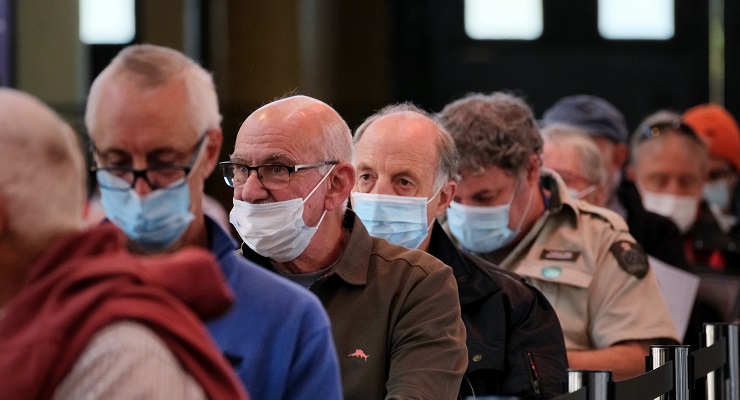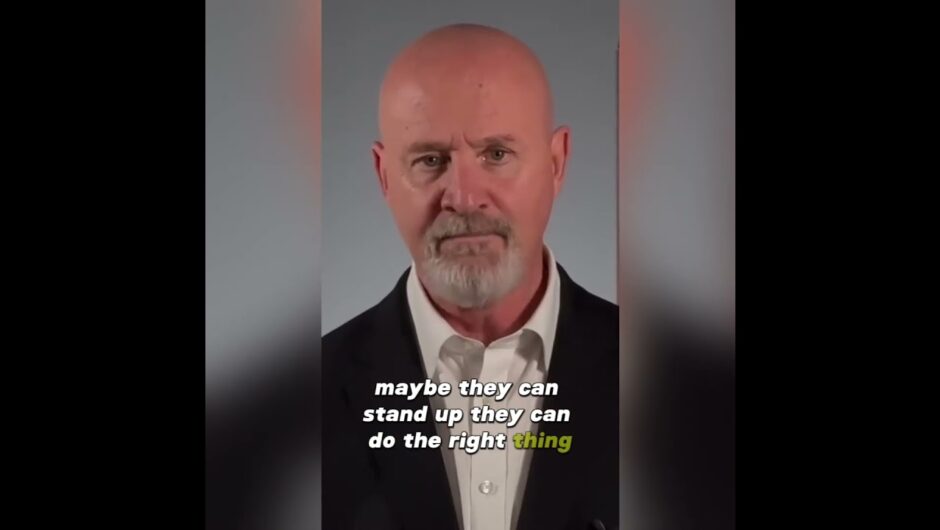In Both Sides Now, author and ethicist Leslie Cannold presents two sides of an argument and then it’s over to you: what do you think is true, and what do you think Cannold really believes?
Today: government failures have made the vaccination decision faced by Australians doubly complex. Should all Australians be grateful for what we have and get ourselves vaccinated as soon as possible for the greater good, or are we perfectly within our rights to wait for more vaccination options?
Yes: if we have to choose without a safety net, we need more and better options. No: Australians do have options, but the best choice is to take the vaccination you’re being offered now.
Yes
Vaccination choices are different to most medical decisions we make.
Most of the time, whether we are choosing for our children or ourselves, we face a health problem for which — with any luck — there is at least one and preferably more treatments for which the benefits outweigh the burdens.
But even if this is not the case and the options we have are scarce or offer little benefit in exchange for lots of costs, the consequences of choosing to treat the condition and how we treat it — even the decision not to intervene at all — are confined to us.
Vaccination decisions are different for two reasons. One, because they are given to healthy people, and two, because the impact of a decision to accept or reject them affects others. Look no further than the current estimate that until 80% of Australians are fully vaccinated, we can’t safely open up to the world.
The different and more complex nature of the vaccination choice makes the public health recommendations about vaccinations different, too. Namely, a well-intentioned balancing act of “minimising harm” to individuals “due to adverse events following immunisation” and achieving the goal of Australia’s vaccination program, which is to protect “all people in Australia from the harm caused by the novel coronavirus SARS-Cov-2”.
The problem for older Australians is that the federal government’s mismanagement of the COVID-19 vaccination program has taken takes the inherent complexity of making choices about vaccinations and doubled it.
The biggest problem is the government’s willingness to indemnify companies that supply vaccines yet – and despite steady lobbying from vaccination efforts since 2004 – refusal to introduce a no-fault vaccine injury compensation scheme. This system, seen in 25 other countries, would mean the unlucky few who do suffer serious adverse effects from vaccinations would be compensated for medical expenses and lost earnings. In the extremely rare case that they die, their family would benefit.
This means that when Australians wrestle about whether to accept the Pfizer shot (if they have cause for concern about anaphylaxes) or the AstraZeneca shot (which carries the rare risk of a very serious condition called thrombosis and thrombocytopenia syndrome, or TTS) we are forced to factor in that if we are the unlucky ones who do suffer a rare side effect but don’t have the kind of job that will support us for what could be months of sick leave, we or our loved ones will be on our own.
Not surprisingly, some Australians might prefer to mitigate these risks by choosing a vaccine with a better safety profile. But the federal government’s mismanagement of the vaccine program from the start, including its inexplicable refusal to mitigate against precisely what has ended up going wrong by ensuring it ordered enough vaccines, means this is not an option.
Instead, and despite the near-constant leaks from hotel quarantine — including of more infectious variants than those we faced last winter — for those 50 and older until last week, and 60-plus still today, the choice is unappetisingly stark: take it or leave it.
This is unacceptable. Or, as Kate Atwell and colleagues have put it: “COVID-19 vaccine brands feel like a buffet in which consumers don’t actually have much choice.” Real choice only exists, in other words, when there are a range of viable options from which to choose. So, how could it be different? Mainly by the government deciding whether it wants to be Arthur or Martha in its approach to vaccines.
Either trotting out the hard sell about doing it for Australia and backing that up with concrete financial support when, as we all know will be the case, it all goes horribly wrong; or ensuring older Australians gain immediate and better access to a wider range of vaccines. Namely, both AstraZeneca and Pfizer and, when it’s approved, Moderna, too.
So at least when we can decide and accept full responsibility for our choice, it’s been one worthy of the name.
No
All the complaining about vaccines leaves me cold. This time last year we didn’t know if we’d have any inoculations safe and effective enough for the mass vaccination programs currently under way around the world.
The fact that we do is a scientific achievement of epic proportions, and one for which we should all be grateful.
While those raised in a consumerist culture might like more choice, vaccines are not consumer products: they are public heath interventions at a time of global crisis. Given some countries don’t have access to any vaccines at all, the idea that there are Australians who require better options is both precious and laughable.
It is also historical revisionism to suggest that any government knew — or should have known — which vaccines would come out on top back when they were placing orders. Or that, given the reality of our current supply problems, the government can do anything other than it has. Namely, to quote Atwell and colleagues, “backing the available vaccines that people can safely receive according to their age and risk profile [and] not encouraging people to wait for new ones”.
This is not because the government is being casual with the lives or health of individual citizens, but because its rightful role is to foster a recovery that will protect the mental health and economic prosperity of us all. That’s one of the main reasons why, according to Professor Julie Leask, the government doesn’t back a compensation scheme — because it puts too much focus on the tiny risks of vaccination, rather than overall safety and benefits for the community.
Which is why the government’s message is clear and should be followed. That all Australians over 40 should book in for their shots straight away and accept whatever vaccination is offered. The risk of dying from TTS is infinitesimal, about 0.5 in a million, or about one in 2 million doses.
For Australians who are between doses of AstraZeneca, ATAGI’s view is even more emphatic: that “people of any age without contraindications who have had their first dose of COVID-19 vaccine Astra Zeneca without any serious adverse events should receive a second dose of the same vaccine”.
For those who need more options, and as the Health Minister Greg Hunt has made clear, there will be enough mRNA vaccine — Moderna or Pfizer — for anyone who wants it come spring. If that isn’t enough freedom to take responsibility for your own decision to vaccinate, I’m not sure what would be.
Which side do you think Cannold sits on? And what do you believe? Send your thoughts to [email protected] with ‘Both Sides Now’ in the subject line.

Our media landscape is amongst the most concentrated in the democratic world. Big media businesses are marred by big media interests. If you want the full, untainted picture on important issues — our environment, corruption, political competence, our culture, our economy — Crikey is required reading.
I am a private person that takes online privacy very seriously but I wanted to contribute my words to this campaign as I genuinely believe that we will improve as a country if more people read publications such as Crikey.
Josh
Sydney, NSW
Join now and save up to 50%
Subscribe before June 30 and choose what you pay for a year of Crikey.








